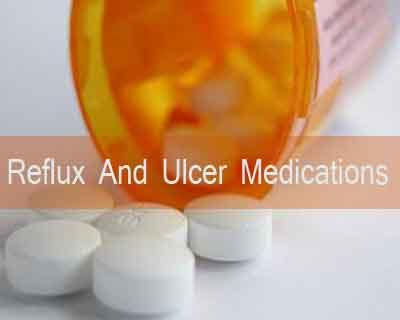- Home
- Editorial
- News
- Practice Guidelines
- Anesthesiology Guidelines
- Cancer Guidelines
- Cardiac Sciences Guidelines
- Critical Care Guidelines
- Dentistry Guidelines
- Dermatology Guidelines
- Diabetes and Endo Guidelines
- Diagnostics Guidelines
- ENT Guidelines
- Featured Practice Guidelines
- Gastroenterology Guidelines
- Geriatrics Guidelines
- Medicine Guidelines
- Nephrology Guidelines
- Neurosciences Guidelines
- Obs and Gynae Guidelines
- Ophthalmology Guidelines
- Orthopaedics Guidelines
- Paediatrics Guidelines
- Psychiatry Guidelines
- Pulmonology Guidelines
- Radiology Guidelines
- Surgery Guidelines
- Urology Guidelines
Reflux and ulcer medications linked to kidney disease

Highlights
- Individuals who took proton pump inhibitors or histamine receptor-2 blockers for heartburn, acid reflux, or ulcers had elevated risks of developing kidney stones.
- In individuals without acute kidney injury, proton pump inhibitors were linked with a higher risk of developing chronic kidney disease or kidney failure compared with histamine receptor-2 blockers.
- Research that uncovered these findings will be presented at ASN Kidney Week 2016 November 15–20 at McCormick Place in Chicago, IL.
Chicago : Certain medications commonly used to treat heartburn, acid reflux, and ulcers can have damaging effects on the kidneys. The findings come from two studies that will be presented at ASN Kidney Week 2016 November 15– 20 at McCormick Place in Chicago, IL.
Proton pump inhibitors (PPIs) and histamine receptor-2 (H2) blockers are commonly used to reduce gastric acid production. To see if these drugs increase the risk of developing kidney stones, Pietro Manuel Ferraro, MD, MS, PhD (Fondazione Policlinico Universitario A. Gemelli Catholic University of the Sacred Heart, in Rome, Italy) and his colleagues examined information on 187,330 participants of the Health Professionals Follow-up Study (HPFS) and Nurses’ Health Study (NHS) I and II who were initially free of kidney stones.
During a follow-up of up to 12 years for PPIs and 26 years for H2 blockers, 3245 symptomatic kidney stones developed. After adjusting for a number of factors such as age, race, body mass index, physical activity, smoking status, comorbidities, use of medications, and intake of nutrients, use of PPIs was associated with a 12% higher risk of developing a kidney stone, and use of H2 blockers with a 13% higher risk. In a subgroup of participants, use of PPIs was associated with lower urinary excretion of calcium, oxalate, citrate, and magnesium, which are components of kidney stones.
“Use of PPIs and H2 blockers is associated with a small increase in risk of incident kidney stones. Further studies are needed to confirm our findings and to investigate whether the The American Society of Nephrology®, ASN®, Kidney Week®, CJASN®, JASN®, NephSAP®, and ASN Kidney News® are registered trademarks of ASN excess risk is related to a particular type of kidney stones such as those made of calcium oxalate,” said Dr. Ferraro.
In a second study, Yan Xie, MPH (VA Saint Louis Health Care System) and his colleagues examined current assumptions that chronic kidney disease that may arise after use of PPIs is secondary to incomplete recovery from acute kidney injury (AKI). When the investigators analyzed information in the Department of Veterans Affairs national database on 152,157 users of PPIs or H2 blockers, PPI use was associated with a greater than 30% higher risk of developing CKD or a combined endpoint of kidney failure or more than 50% decline in estimated glomerular filtration rate (a measure of kidney function) compared with H2 blocker use in the absence of AKI.
"Reliance on AKI as a marker of potential adverse renal events in those treated with PPI is not sufficient,” said Xie “Exercising vigilance in PPI use even in the absence of AKI— and careful attention to kidney function in PPI users may be a reasonable approach.”
Studies: Proton Pump Inhibitors, Histamine Receptor-2 Blockers and the Risk of Incident Kidney Stones (Abstract 931); Long Term Kidney Outcomes Among Proton Pump Inhibitors Users Without Intervening Acute Kidney Injury (Abstract 3495).
ASN Kidney Week 2016, the largest nephrology meeting of its kind, will provide a forum for more than 13,000 professionals to discuss the latest findings in kidney health research and engage in educational sessions related to advances in the care of patients with kidney and related disorders. Kidney Week 2016 will take place November 15–20, 2015 in Chicago, IL.

Disclaimer: This site is primarily intended for healthcare professionals. Any content/information on this website does not replace the advice of medical and/or health professionals and should not be construed as medical/diagnostic advice/endorsement or prescription. Use of this site is subject to our terms of use, privacy policy, advertisement policy. © 2020 Minerva Medical Treatment Pvt Ltd